Wagner: Das Rheingold (Haenchen)
Introduction
A performance of Wagners`s opening salvo in the huge Ring tetralogy.
Conducted by Hartmut Haenchen, this is Pierre Audi`s rather unorthodox (and to be honest, quite controversial, for some critics at least) production live from Amsterdam - and apparently `based on` the New Complete Edition of Wagner`s music - which I assume means they took everything they liked and left out everything they didn`t.
The story concerns the gold that the dwarf, Alberich, has stolen from the Rhinemaidens. Alberich takes the loot down to Nibelheim, where he persuades Mime to fashion magical items which will give him ultimate power over both Mime, and the race of Nibelungs. They all become his slaves, and spend their lives mining for more gold to satiate his greed.
Meanwhile, well above ground, Wotan and the rest of the Gods have had a new palace built for them by the giants, Fafmer and Fasolt. When the giants come for payment, Wotan tries to get away without paying anything, so the giants kidnap the Goddess Freia as a ransom.
Wotan has no choice, but to try and steal the Rheingold himself, and so he descends to Nibelheim with his confidante Loge and trick Alberich into being captured so he has to give up the treasure - including the ring, which makes the owner all-powerful, as long as he renounces love.
The giants return with Freia and insist Wotan stack the gold up in front of Freia until she cannot be seen. It has all been used up, but Fasolt (who has fallen in love with her) can still see her eyes through a chink and so Wotan has to hand the ring over to plug the gap (following a dire warning from the Earth goddess, Erda).
The giants fight over the gold and Fasolt is killed, leaving Fafner with everything.
The Gods retreat to the safety of their new palace, Valhalla, but their demise has already begun.
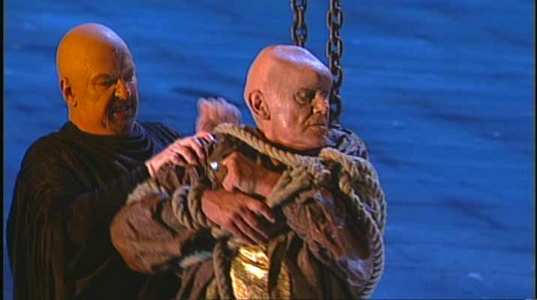
Video
As we`ve come to expect from Opus Arte discs, the video is presented in region-free NTSC 16/9 anamorphic, and very nice it is aswell, with litle to complain about in some very dark scenes indeed (so dark, in fact, that Haenchen has to use an `E.T. finger` baton at the start) .
The staging is very complex (perhaps too fussy), with the orchestra being enveloped by huge wooden platforms and the performers quite often find themelves stuck in between the orchestra and the audience, rather than having the pit as a `safety barrier`. Despite this, the camerawork manages to create quite an intimate feel.
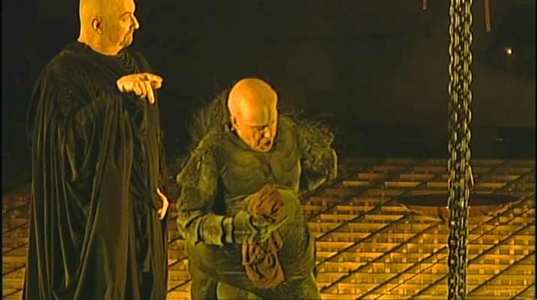
Audio
The DTS sound is admirable, although there are some balance problems, which may well have something to do with the position of the orchestra.
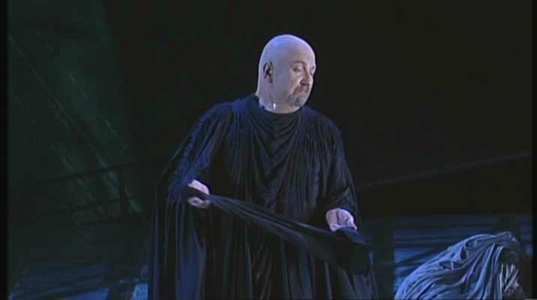
Features
The main extra is a 50 minute documentary (`Forging the Ring`) on the development and performance of this particular cycle, and contains fascinating insights into the future instalments, together with fairly candid interviews with the performers (including members of the orchestras involved).
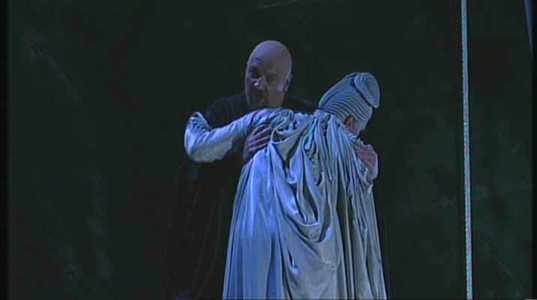
Conclusion
A very creditable beginning to the Amsterdam Ring.
I imagine much of the controversy came from Pierre Audi`s set (but then he`s never really been a traditionalist) with the placing of the orchestra right in the middle of the action. It actually looks very good on the small screen, and the fire and brimstone of Niebelheim is captured wonderfully.
More annoying is the fact that Wotan`s spear and Donner`s hammer appear to have been built into the set as `symbols`. It will be interesting to see how the spear is treated in later operas.
Costumes are interesting to say the least, with the Gods and Rheinmaidens wearing some peculiar, almost `gimpy` outfits which flattered them to varying degrees, and Mime appears to have mutated into some form of insect.
Haenchen generally takes things at a fairly brisk pace which creates a nice flow, although certain passages such as the entrance of the giants for the first time lose their power. The orchestral playing is excellent.
Some of the minor roles are sung (and acted) as if there is not much interest, but luckily many of the main characters are fine, especially Mime (Graham Clark - who appears in this role on other DVDs, Loge (Chris Merritt), the giants and a wonderfully sung Erda (Anne Gjevang)
Henk Smit as Alberich is suitable nasty, cruel, and generally a fine pantomime villain, but sounds slightly strained in places, although we can all have our bad days.
John Bröcheler (Wotan) has great presence on stage, but I would have preferred a little more gravitas as suits his role as chief of the Gods, but there`s nothing wrong with the voice overall.
One more very minor irritation was the abrupt disc break before the Nibelheim scene, but considering this is almost continuous music I`m not sure where else they could have put it.
I`m looking forward to the rest of this particular Ring.
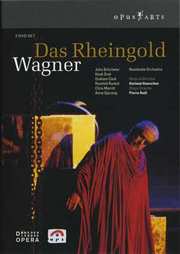
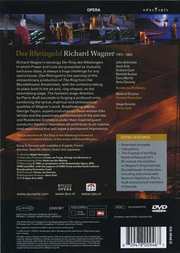




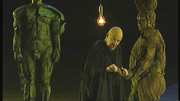
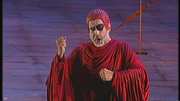
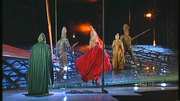
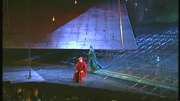
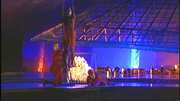
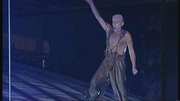

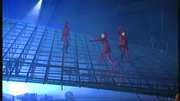
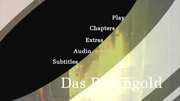






























Your Opinions and Comments
Be the first to post a comment!